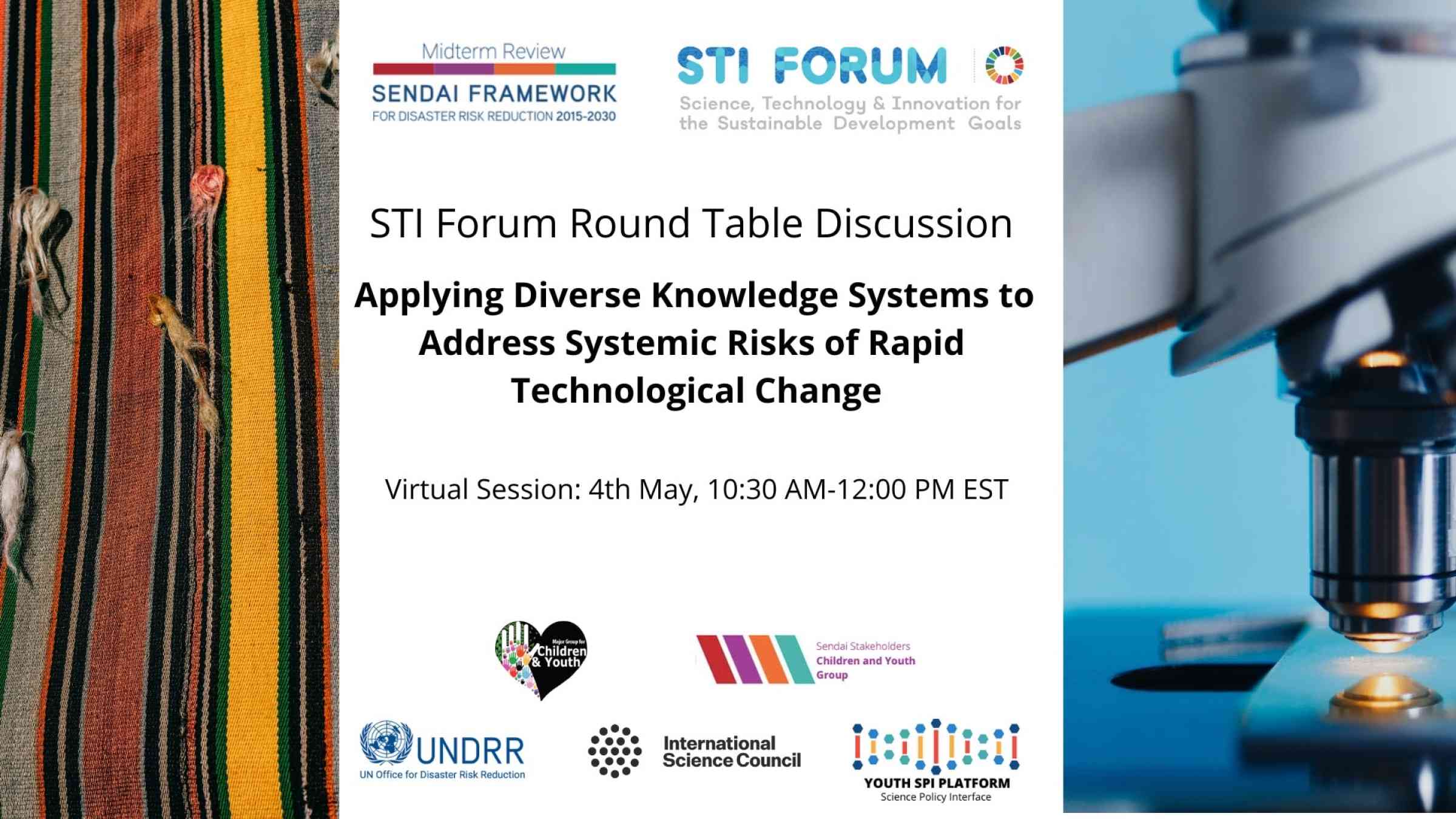Applying Diverse Knowledge Systems to Address Systemic Risks of Rapid Technological Change

Time
10:30 AM- 12:00 AM EST
About
This is a side event of the 7th Multi-stakeholder Forum on Science, Technology and Innovation for the Sustainable Development Goals are the interconnected ways in which societies organize what is known, how it is known and how that knowledge is related to the material basis of existence. They are closely intertwined with society, economies and cultures and are integral to shaping the way societies develop, function and mobilize resources. In relation to addressing systemic risk and building resilience, the Sendai Framework highlights the importance of dialogue among scientific communities, policymakers and other stakeholders; and also emphasizes the complementary role of traditional, indigenous and local knowledge, including its generation, protection and transmission- through education and exchange between and among communities and generation.
This event will provide a platform for a dialogue on how diverse knowledge systems can be applied in order to better identify and address the systemic nature of risk in the context of rapid technological change and working towards the accelerated implementation of the SDGs, specifically those under review this year. In so doing, the event will address guiding questions 1 and 5. The recommendations from this session, will in turn inform the Midterm Review of the Sendai Framework, which is being carried out in coherence and integration with the stocktake and reviews of other relevant UN frameworks, inter alia, 2030 Agenda, Financing for Development (FfD), Paris Climate Agreement, Convention on Biological Diversity (CBD), New Urban Agenda (NUA), Global Compact for Migration (GCM) etc.
Guiding Questions
- How do we operationalise genuinely inclusive (of different knowledge systems) ‘ways of knowing’ in relation to better understanding risk, and our relationship with it?
- How can findings from these ‘ways of knowing’ lead to effective action to address risk and build resilience in pursuit of the 2030 Agenda, and human and ecosystems health and wellbeing in the context of rapid technological change?
An event link will be sent to all who register through this form.
Speakers
| Topic | Organization | Speaker |
|---|---|---|
| Welcome and Overview- MTR Process and Findings on Diversity of Knowledge Systems and Rapid Technological Change | UNDRR MTR SF Team | Marc Gordon |
| What can contemporary science systems do better to overcome its shortcomings in relation to diversity of knowledge? | International Science Council | Melody Brown Burkins, ISC Governing Board |
| What do local knowledge systems see as an appropriate framework? | Huairou Commission-Rural Women’s Network | Pauline Karuki |
| What do indigenous knowledge systems see as an appropriate framework? | Indigenous Peoples Major Group | Anish Shreshta |
| Example of diverse knowledge systems in tech-enabled education ecosystems | Media Lab in Aalto University, MIT Media Lab, Fellow |
Jana Pejoska |
| What do young scientists, including those of indigenous background, think about this? | Youth SPI Platform- DRR Young Scientists Platform | Alinne Martinez |
| Reflections on systems of knowledge integration | NOAA | Roger Pulwarty |
| Open Discussion and Closing | UNDRR MTR SF Team | Marc Gordon |